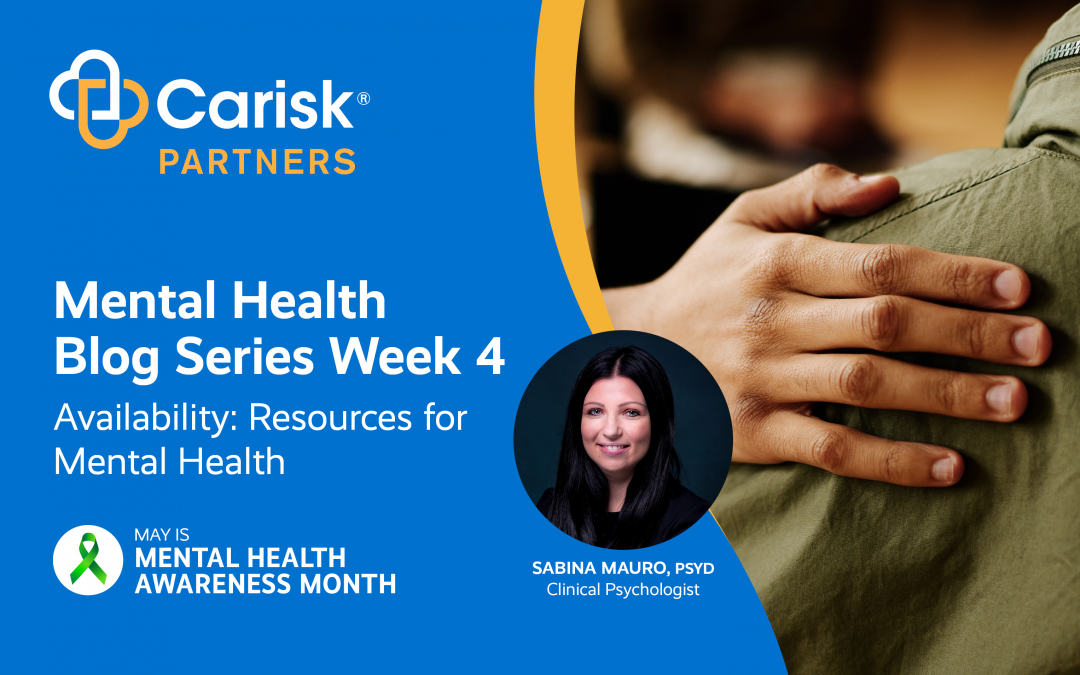Mental Health Awareness Month | Week 4 Blog by Dr. Sabina Mauro
The number one resource available to understand our mental wellness is ourselves. Checking in with ourselves on a consistent basis can help us better understand and isolate divergence from mental wellness. Only we know where we are on our mental wellness journey and where we want to be. We need to want to do research and be proactive for the most fulfilling outcome. Finding resources should take a holistic approach that incorporates a mental wellness routine that includes at a minimum:
Lifestyle changes:
- Nutrition: Seek resources for a balanced nutrition plan to improve mental wellness including mood, energy levels, and cognitive functioning.
- Sleep hygiene: Seek resources to maintain a structured sleep schedule and bedtime routine that promotes relaxation and restoration.
- Physical exercise: Seek resources that involve moving your body and working your muscles with intention to strengthen the mind-body connection.
- Coping strategies: Seek adaptive coping mechanisms that promote growth and perspective.
Educational resources:
- Podcasts: You can listen to a podcast in the car, waiting for an appointment, or doing home chores.
- Online resources: Blogs and mental health organizations can provide a wealth of information on various topics related to mental wellness.
- Applications (Phone Apps) can offer insights into individual trends and risks for common conditions.
Daily practices:
- Practicing gratitude: This practice helps us appreciate the present moment and can also help us during difficult moments in life.
- Journaling: This practice can teach us to not only observe our emotions and thoughts but also release them in a constructive and non-judgmental way.
- Breathe Work: This practice can help reset our nervous system at any point during the day
- Self-reflection: This practice can help us be more proactive with our behaviors rather than reactive.
- Mindful activity: This practice can teach us how to remain in the present moment rather than dwell on the past or be somewhere in the future.
Professional Help:
- Psychotherapy: Can help us develop healthier thinking patterns, learn to better regulate our emotions, understand our behaviors, and heal wounds from our past.
- Medication management: Some people may benefit from medication regimen combined with therapy to obtain maximum results.
- 24/7 hotline numbers: These services are accessible to assist us when social support is not available or limited during an acute emotional distress situation.
Having a support network that supports our mental wellness is key to a successful positive outcome. Explaining to friends and family why this is important and how they can support us in striving for mental wellness will solidify your desire to make change.
In today’s modern society, it is increasingly easy to do research. Take a moment to reflect on the resources that are noted above. What is going to have the most immediate impact on your mental wellness? Are you willing to commit to incorporating a daily practice into your life?





